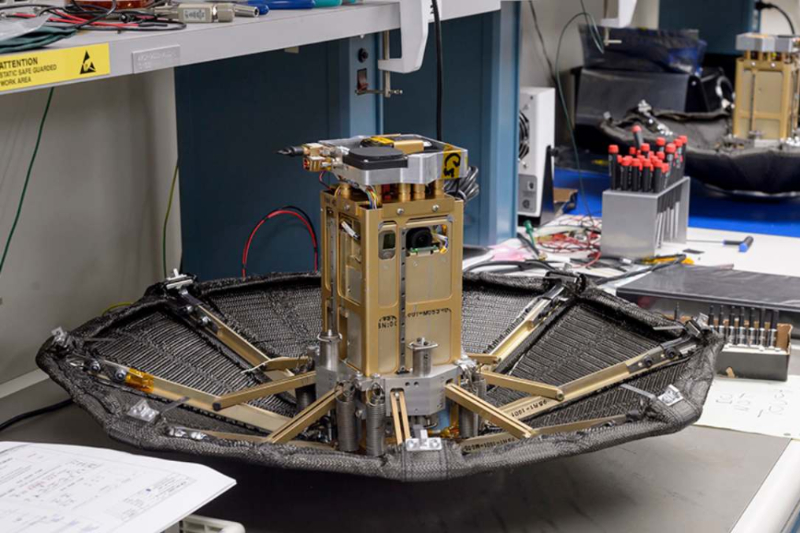- Sponsored -
NASA launches foldable heat shield, could open door to manned Mars mission

The United States National Aeronautics and Space Administration (NASA) on September 12 launched and debuted a folded umbrella like a heat shield. This new technology — dubbed Adaptable Deployable Entry Placement Technology (ADEPT) keeps a small folded umbrella inside rockets, opening handle up in space to protect larger payloads as they enter a planet’s atmosphere, NASA’s principal investigator on the project Brandon Smith said.
- Sponsored -
A manned mission to Mars seems coming close for the folks of NASA. As NASA is always busy and makes an effort to go to another planet, but Mars always give scientists and researchers a long list of challenges to overcome. There’s one thing that no planet-hopping expedition could do without a heat shield.
Mankind doesn’t have a whole lot of interest in visiting planets without atmospheres — at least not yet — and when a spacecraft makes its descent to a new planet’s surface they’ll have to deal with the intense friction between the ship and the various gasses that surround the planet. Keeping in mind, NASA has launched an entirely new kind of heat shield and it may be a perfect one to fir for a future mission to Mars and other planets.
NASA’s newly launch heat shield would be situated on the front of a spacecraft as it enters a planet’s atmosphere. It opens like a flower and blocks the intense heat from damaging or destroying the ship itself.
What makes this heat shield so special?
Up till now, heat shields were static components of a spacecraft. The entire rest of the spacecraft typically has to be built with the heat shield in mind, and that puts some serious limits on how a manned ship could be designed. With a deployable shield, the ship can essentially be whatever its designers want it to be, and the shield can be deployed to do its job whenever it’s needed.
According to Reuters, “NASA tested the new heat shield this week, launching its test rocket from New Mexico and monitoring the deployment of the shield as the rocket made reentry. The group hasn’t offered much in the way of details as to how the test went, but that information will be released once NASA has a chance to examine the hardware that made it back to Earth.”
Also read: Scientists create a flying robot that can hover and turn, as quick as an insect
Also read: NASA’s Parker Solar Probe launch for Sun, postponed till Sunday
- Sponsored -
